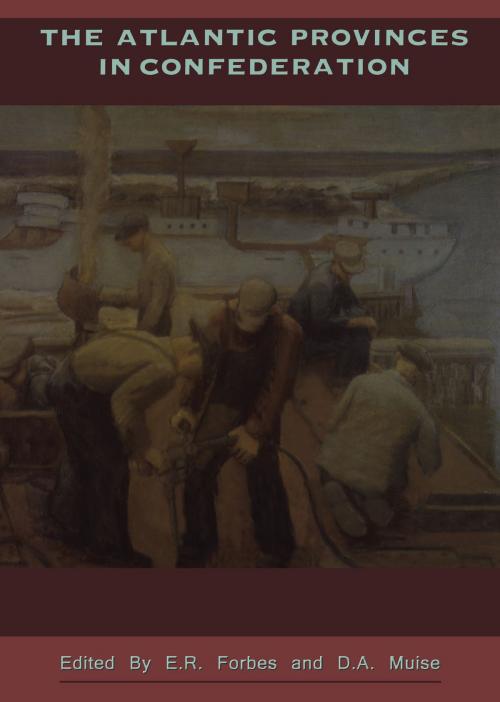The Atlantic Provinces in Confederation
Nonfiction, History, Canada, Social & Cultural Studies, Political Science, International| Author: | ISBN: | 9781442655416 | |
| Publisher: | University of Toronto Press, Scholarly Publishing Division | Publication: | December 15, 1993 |
| Imprint: | Language: | English |
| Author: | |
| ISBN: | 9781442655416 |
| Publisher: | University of Toronto Press, Scholarly Publishing Division |
| Publication: | December 15, 1993 |
| Imprint: | |
| Language: | English |
Canada's four easternmost provinces, while richly diverse in character and history, share many elements of their political and economic experience within Confederation. In this volume thirteen leading historians explore the shifting tides of Atlantic Canada's history, beginning with the union of Nova Scotia and New Brunswick with Ontario and Quebec to form the Dominion in 1867. Continuing on through Prince Edward Island's entry into Confederation six years later and Newfoundland's in 1949, they take the story of Atlantic Canada up to the 1980s.
Collectively their work sheds light on the complex political dynamic between the region and Ottawa and reveals the roots of current social and economic realities. Fragmentation versus integration, plenty versus scarcity, centre versus periphery, and other models inform their analysis.
The development of regional disparity, and responses to it, form a major theme. The tradition of regional protest by Maritimers, and later Atlantic Canadians, runs deep; so does their commitment to the idea of an integrated Canadian nation. Protests, over the decades, have primarily been expressions of frustration at perceived exclusion from the full benefits of national union. The creation of national markets for labour, capital, and goods often operated to their detriment, and political decisions at the national level frequently reinforced rather than alleviated the regional predicament.
More than an account of the wealthy and powerful, this book often places ordinary men and women at the centre of the story. Above all, it reveals the resilience of Atlantic Canadians as they have struggled to overcome their problems and to share in the benefits of life in the Canadian community.
Canada's four easternmost provinces, while richly diverse in character and history, share many elements of their political and economic experience within Confederation. In this volume thirteen leading historians explore the shifting tides of Atlantic Canada's history, beginning with the union of Nova Scotia and New Brunswick with Ontario and Quebec to form the Dominion in 1867. Continuing on through Prince Edward Island's entry into Confederation six years later and Newfoundland's in 1949, they take the story of Atlantic Canada up to the 1980s.
Collectively their work sheds light on the complex political dynamic between the region and Ottawa and reveals the roots of current social and economic realities. Fragmentation versus integration, plenty versus scarcity, centre versus periphery, and other models inform their analysis.
The development of regional disparity, and responses to it, form a major theme. The tradition of regional protest by Maritimers, and later Atlantic Canadians, runs deep; so does their commitment to the idea of an integrated Canadian nation. Protests, over the decades, have primarily been expressions of frustration at perceived exclusion from the full benefits of national union. The creation of national markets for labour, capital, and goods often operated to their detriment, and political decisions at the national level frequently reinforced rather than alleviated the regional predicament.
More than an account of the wealthy and powerful, this book often places ordinary men and women at the centre of the story. Above all, it reveals the resilience of Atlantic Canadians as they have struggled to overcome their problems and to share in the benefits of life in the Canadian community.















